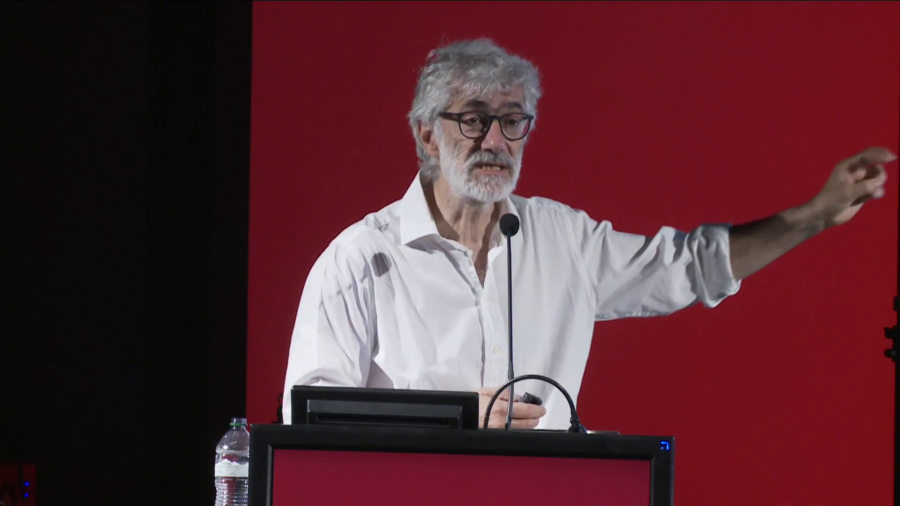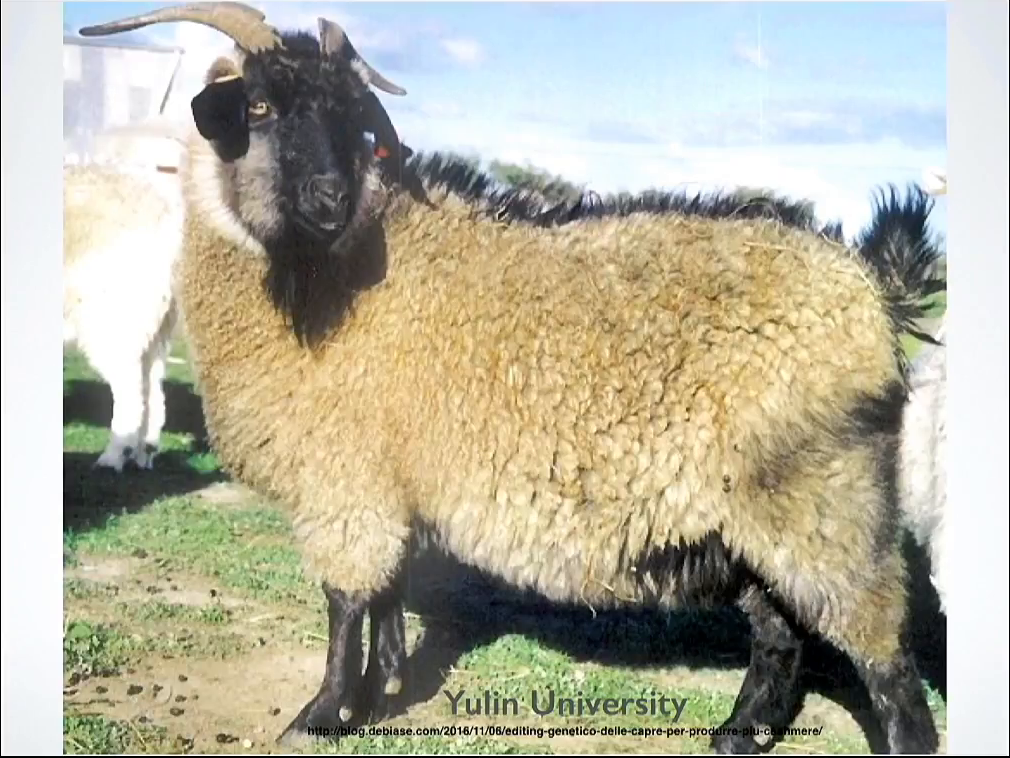Luca De Biase: Well, being introduced as an incredible speaker in the fake news context, I would underline the “incredible.” In terms of this year’s statements, I was thinking with Paolo yesterday about this kind of wording, “a person of consequence.” It used to be “a man of consequence” but now we need to say a person a consequence, and it’s a good thing. The person of consequence should be a person that is coherent. It does what it says. He stays where he stands. He is a person of consequence.
But in a changing world, what is it, a person of consequence in a changing world? Is it coherent or is it something different? What kind of coherence do we need? What kind of approach do we need to see the changing world in a way that is positive? A person of consequence in a changing world.
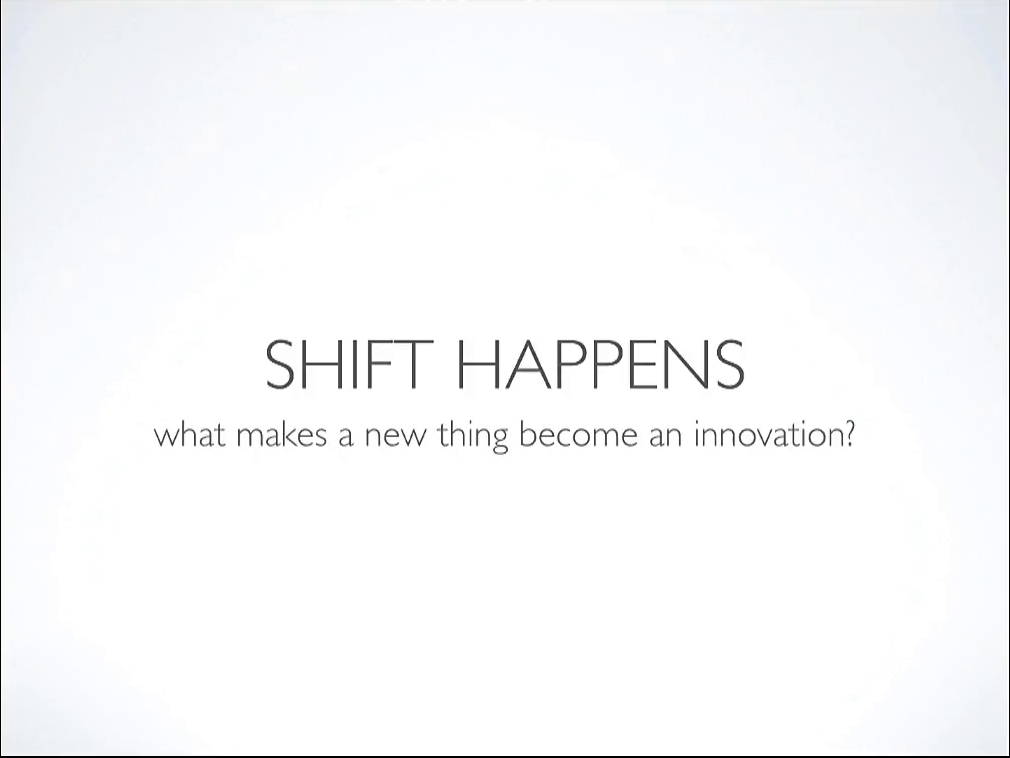
You know, this is a phrase that I use a lot; you know already. But you forgot it so I remind you that shift happens. And changing can be sort of good or sort of bad. And also could be just a new thing, or could be a very important new thing—something that changes the world. An innovation is not a new thing, it is something that has consequences. Thinking about consequences, you divide new things in two parts. One part is about new things that just are new, and that’s it. And other things that are new and change the world.
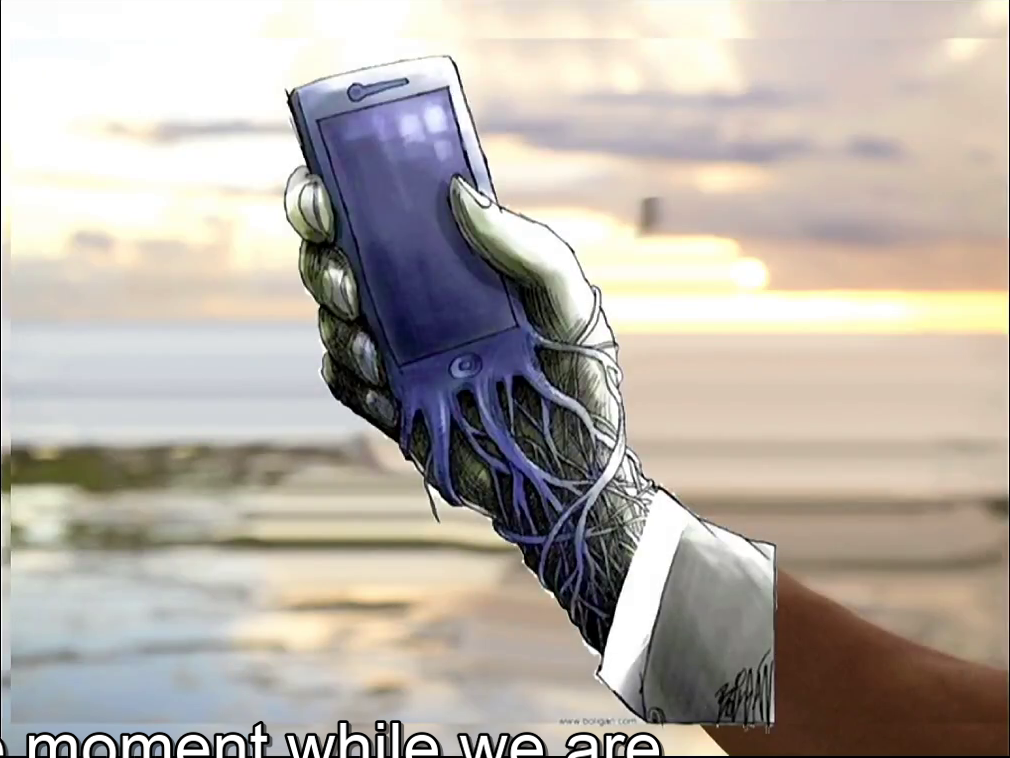
And there are intended consequences, or unintended consequences. In the same time in which State of the Net was conceived. In the States they invented this stuff. And it had consequences. It changed our body. It changed our life. It changed a lot of things.
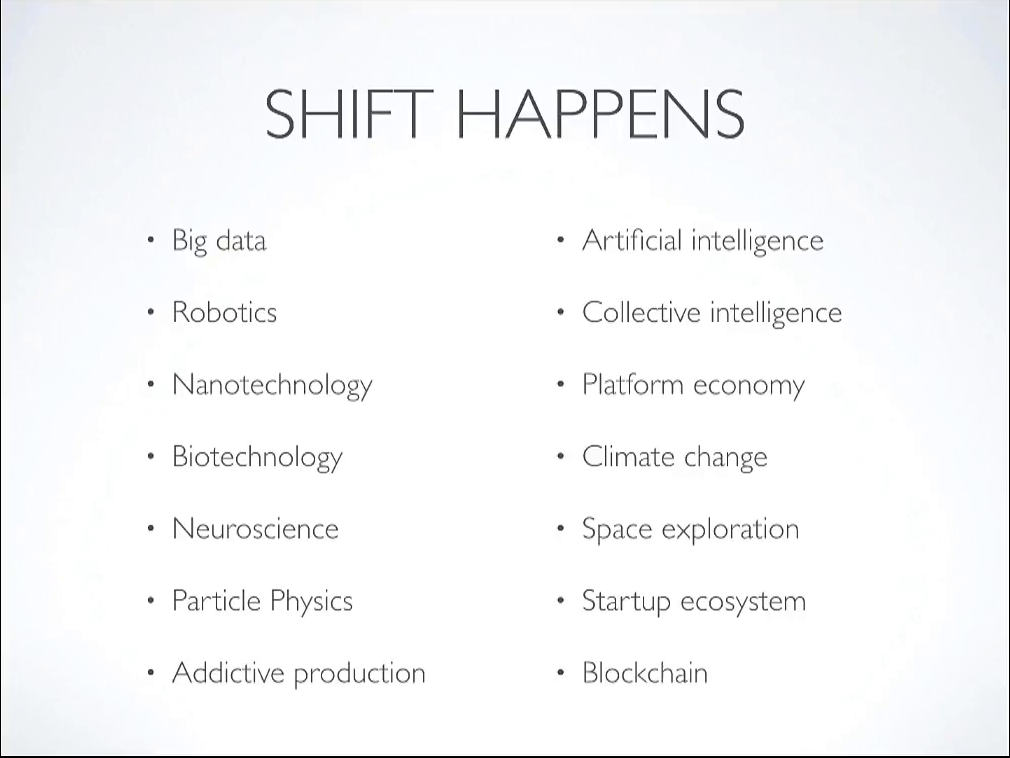
And unintended consequences are something that we are talking about at the moment while we are talking about fake news, data ownership, transparency, and all of this stuff. There are many frontiers of shift. And the “F” is always there.
These new technologies open possibilities, and close other possibilities. We live in eco-technical niches as anybody else in the world, but we create our niches and we change them. So we adapt to the niches that we already have built in the past, and then we change them and create new niches in which we will adapt. But the changing is exactly what we need to understand.
What is important in the changing situation and what is just new? What has consequences? What hasn’t consequence? What has intended consequences and what doesn’t have intended consequences? I would like to show you just three new things.
This is really new. I mean, they just announced at MIT that they created Norman. Norman is an AI that the has been developed in the Dark Web. And Norman has only seen what happens in the Dark Web. And it is able to tell what it sees in images. So they show Norman images, and Norman says what those images are about.
And and they showed him also the images of the Rorschach Test. And they waited for what he was seeing in those. For example in this case, Norman, who has been trained as I told you in the Dark Web, in this image it sees a man that went down a building and collapsed on the ground and is dead. And every other image in the Rorschach Test brings Norman to say these kind of ugly, violent, terrible things. He’s paranoid. It’s a paranoid, psychopathic artificial intelligence.
Is this important or not, that they created this kind of thing? Clearly I don’t care very much about this, but it tells you that the artificial intelligence is what the context in which it was trained makes it.
So this in a way is important to understand consequences. What are we doing? You know there is a lot of debate about introducing artificial intelligence in the world. Some people say we are creating aliens that will dominate the human race. Some others are just talking about the fact that artificial intelligence will make jobs disappear. And some others say it will make us better, more happy, with less bad things and repetitive things to do, and other things that we are just not able to do like reading old books or all the papers about our disciplinary domain and using this kind of knowledge for acting in our profession.
So, artificial intelligence has a lot of consequences but we don’t know them, we are just concerned about that in this moment, and we understand that artificial intelligence is what we train it to be.
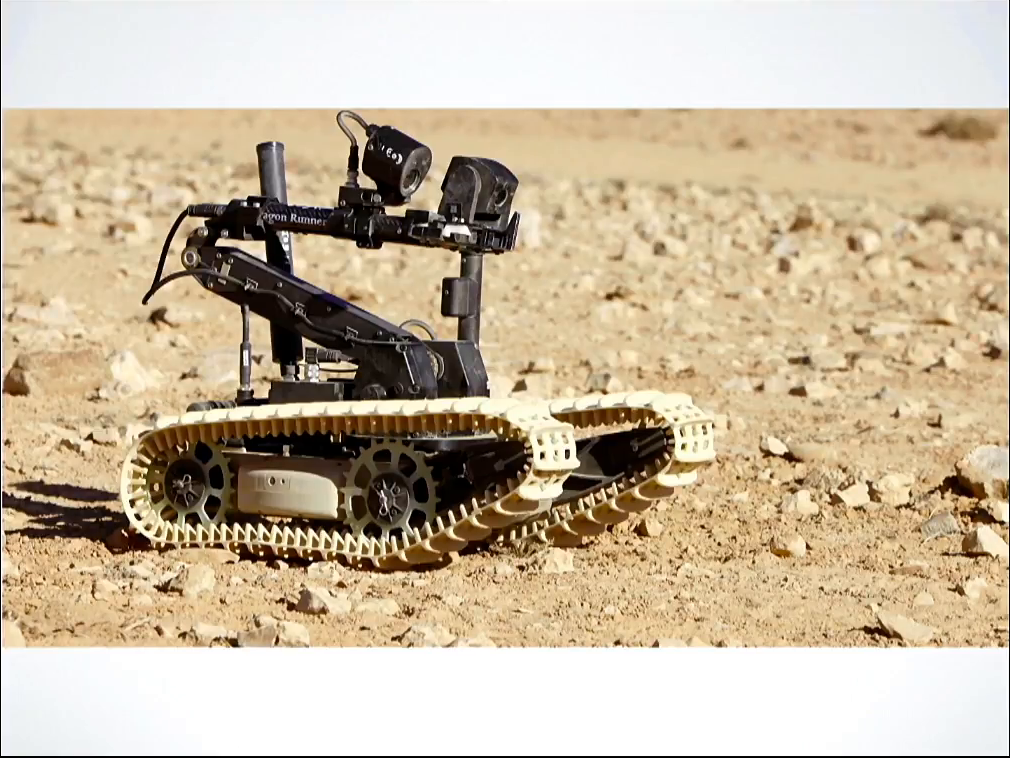
This other guy, you know it. It’s the frontier of new weapons. This is a robot. It was used to kill one of those terrorists that where killing the police in Texas. One of them was not reachable by humans so they sent this guy and it was able to kill him. What are the consequences of weapons that are just robots?
And finally, this is another new thing that happened. This animal is able to do the wool that is used in cashmere and produces 30% more cashmere because it has been changed in the DNA using CRISPR/Cas9. CRISPR/Cas9 is a new technology. Relatively new; it was invented in 2011. Now it’s the technology that attracts more investment in the states, and in Boston in particular, for life sciences. It is able to gene edit DNA. We think that it’s very clearly usable in terms of development of new animals that can be useful for humans, but it is usable for changing humans, too. What are the consequences of this? What will happen?
The approach to understanding this is exactly the discussion that we have. And I asked Paolo to tell me when I have to stop so the consequences will not be too bad for you listening to this speech.
But CRISPR/Cas9 is such a problem that the inventor of the technology that is called Jennifer Doudna—DNA in the name, Doudna. Jennifer Doudna asked all her colleagues to come to Washington and discuss a moratorium on using CRISPR/Cas9 on humans. They discussed for a week about the consequences of using CRISPR/Cas9 on humans. And after a week, they decided that they will use it on humans. And the idea was if we don’t do it, others will do it, so we’ll do it.
That kind of approach to consequences, it’s general. It’s something that we should know that happens. There are people that just do things and then think about what the consequences are, and there are other people that think before doing things. Usually more of the first kind of people are in America, and more of the second kind of people are in Europe.
The fact is that it’s difficult to know about consequences. We don’t believe anymore in forecasting. As the economist has said, economics is the science that studies why its forecasting didn’t happen. So it’s clear that we don’t believe anymore in forecasting. But a whole bunch of things that we do are about a sort of idea that we have about the future. And the only thing that we know about the future it is the consequence of what we do.
So what happens, we don’t know the future we just rely on narratives that make sense of what happens in a way that creates a story. And in that story we think we understand the consequences of what we do. That is a nar—it’s always a narrative. It can be the economy, financial market kind of narrative. It can be the technical kind of narrative that says resistance is futile, technology will come, exponential growth of the ability of computers will change the word and humans will be overwhelmed by technology. Or other things like that. But they are always narratives. The real problem is discussing the narratives and making them something that we know about, we improve constantly.
There are also different approaches in terms of analytical or synthetic approach. I mean, if you go analytical on the consequences of what you do, you will find an incredible complexity of ramifications of consequences which will stop you at a certain time. If you go just synthetic, I mean, let’s stop a ship coming with immigrants and we will solve the problem. That kind of narrative is very synthetic and also very much critiquable.
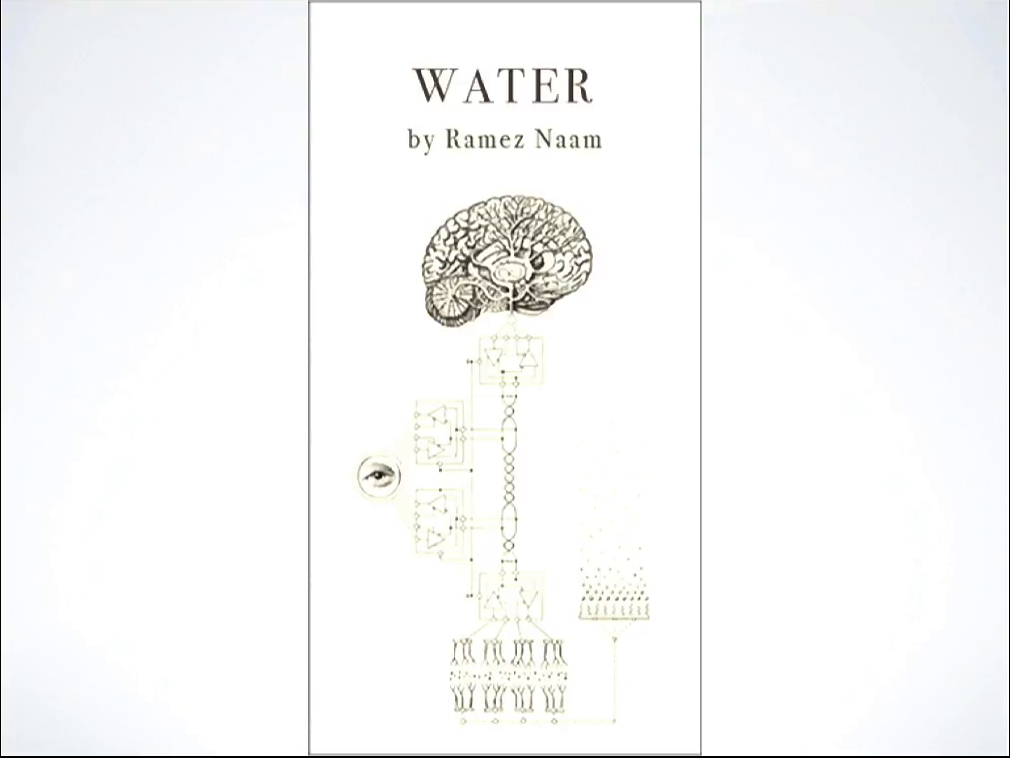
Water, Ramez Naam
There are other narratives which are real narratives. This is a story that was asked to this science fiction novelist by the Institute for the Future in a project that they made about understanding what happens with chips implanted in brains. And many novelists came out with their ideas of what is the scenario that it created. Naam came up with a story that talks about the fact that everybody with a chip is competitive, everybody else without a chip is not competitive, so everybody needs a chip. And in that society where everybody needs a chip, some are rich and so they buy the chip, which is very expensive. Others are not rich, so they accept chips that are not expensive but they bring advertising. So in their brains, when they go around, every bottle of water tells them “Buy me because you need me,” that kind of thing.
So, these are narratives. And the intelligent thing to do is to discuss narratives. We have a story of big narratives in the last hundred years. One major narrative that we knew until the 70s was modernization, the modern narrative. And it was led by two big narratives that were Marxism and liberalism. It was criticized by postmodernists. They were like Lyotard and other philosophers, telling us that the big narratives don’t work. We need to experiment with new narratives and sort of like situationists research, create a culture of movement, of experiment, of something that is a weak kind of narrative but is a leaving narrative in the sense that Paolo was probably talking about before, but with a problem. They didn’t go anywhere. They just told us about the end of modernism. They were post-modern, but there was no other relationship with reality than a changing of approach to reality.
My proposal is that we go for a post-contemporary approach. A post-contemporary approach is the idea of the “state of the net” culture. It is exactly what happens here. Always looking ahead. Always looking at what’s next. Always looking at the next big thing or the next good thing. Imagining to be always after the present. It’s really an anticipatory— It’s not forecasting, it’s just looking at facts with an anticipatory approach. And a critical approach to see every new thing asking the facts. If they are innovation, they will have consequences or not.
And in this culture we don’t wait for consequences to arrive. We think the complexity like people that are aware of the ecological approach that we need to understand consequences.
So now, coming back to the the beginning, what is a person of consequence? It’s not just coherent in the sense that she never changes. A person of consequence is able to change, because the context changes, but has a purpose, has a strategy. She wants to be the author of her life. And that’s really I feel the secret of understanding how to live through the change in a way that helps us understand the consequences. Not forecasting them, but understanding what we really want to do in terms of finding ways that open possibilities and have consequences that we like and want for the rest of the world. Thank you.
